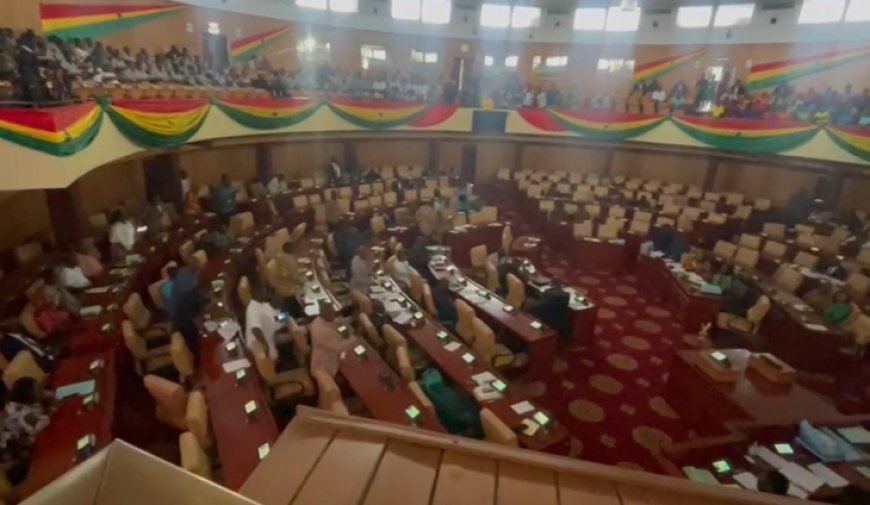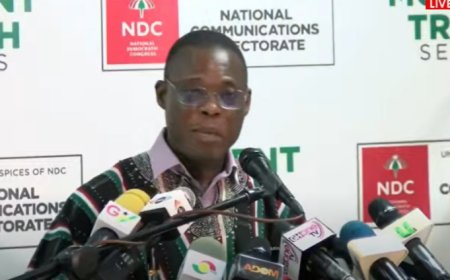Ministry of Finance Implements Economic Stabilization Strategies Amid Debt Restructuring
The Ministry of Finance, following domestic debt restructuring and ongoing negotiations with international creditors, has implemented strategic measures to stabilize Ghana's economy. Deputy Minister Dr. Alex Ampabeng outlined reforms to the taxpayer database, tax policy reviews, and a proposed debt ceiling. The measures have garnered support from industry leaders but also sparked calls for leaner government spending.

The Ministry of Finance has taken significant steps to stabilize Ghana's economy in the wake of recent domestic debt restructuring and ongoing negotiations with international creditors. These measures aim to provide a clear roadmap out of the economic crisis, according to Deputy Minister of Finance, Dr. Alex Ampabeng.
Dr. Ampabeng highlighted key strategies during a press briefing, emphasizing the importance of reforming the taxpayer database. "What we are doing with GRA, and actually I am leading that with the Ghana Revenue Authority, is to reform a taxpayer database," he said. "We want to clean it to the point where the less active ones are identified, and we're able to track individuals and their businesses with the help of the Ghana card, digitization, and digital address systems. This will make compliance easier."
The Deputy Minister also noted the ongoing review of tax policies, aimed at making them less punitive and more conducive to business growth. "We are reviewing all the tax handles to create a business-friendly environment that will boost FDI inflows and restore Ghana's economic position," he explained. "A number of taxes will be assessed to determine which should be removed, modified, or reintroduced."
In a move to further strengthen fiscal discipline, Dr. Ampabeng proposed the introduction of a debt ceiling, limiting the government's borrowing capacity. He also mentioned the establishment of an independent fiscal council to provide expert advice and maintain fiscal stability. "We want an independent fiscal council, much like the Congressional Budget Office in the U.S., with a team of competent individuals who can withstand pressures and ensure independence," Dr. Ampabeng added.
The measures have been met with mixed reactions. Edward Ackah-Nyamike Jnr, President of the Hoteliers Association of Ghana, welcomed the government's efforts but expressed concerns about effective implementation. "It is quite worrying that the government is responding to issues and challenges raised over a long period. We hope that this is not just something to pull industries down only for the status quo to continue," he said.
Economist and Professor of Finance at the University of Ghana Business School, Prof. Godfred Bokpin, while acknowledging the government's efforts, called for a leaner administration. "The next government should adopt a lean government approach with no more than 40 ministers. We should merge some ministries and collapse unnecessary agencies that drain national resources," Prof. Bokpin advised. "Let's progressively shrink governance costs."
The Ministry's new policies mark a significant shift in Ghana's economic strategy, aiming to stabilize the economy and build a more resilient financial system. However, the success of these measures will depend on their effective implementation and the government's ability to manage its spending efficiently.
What's Your Reaction?






































































